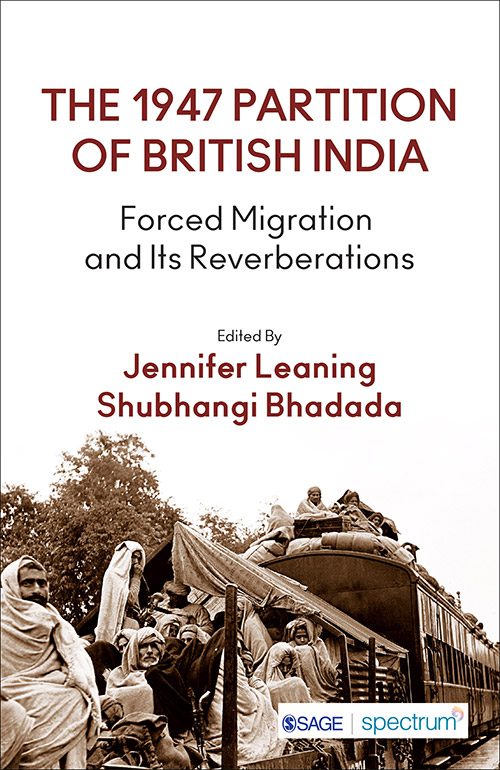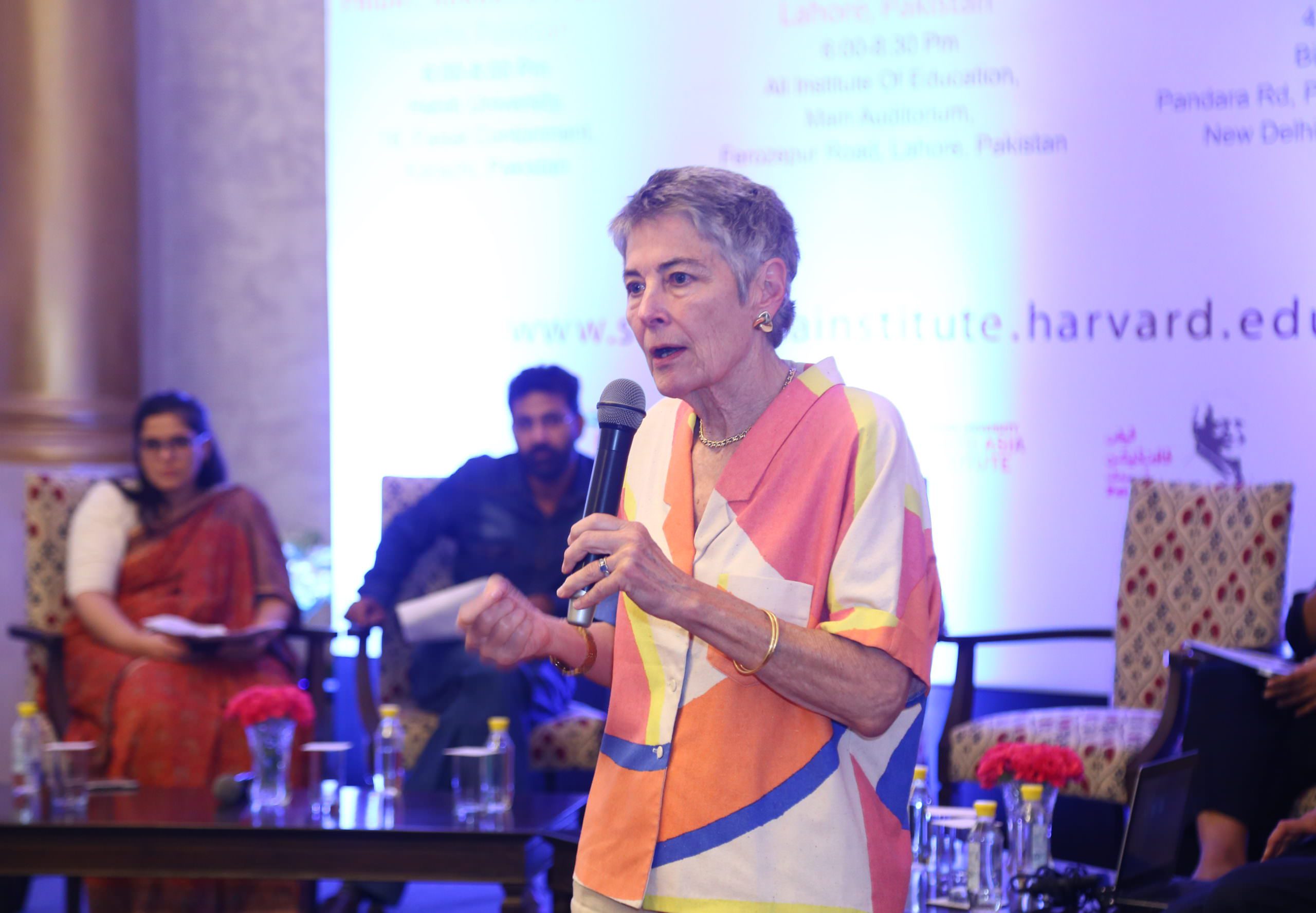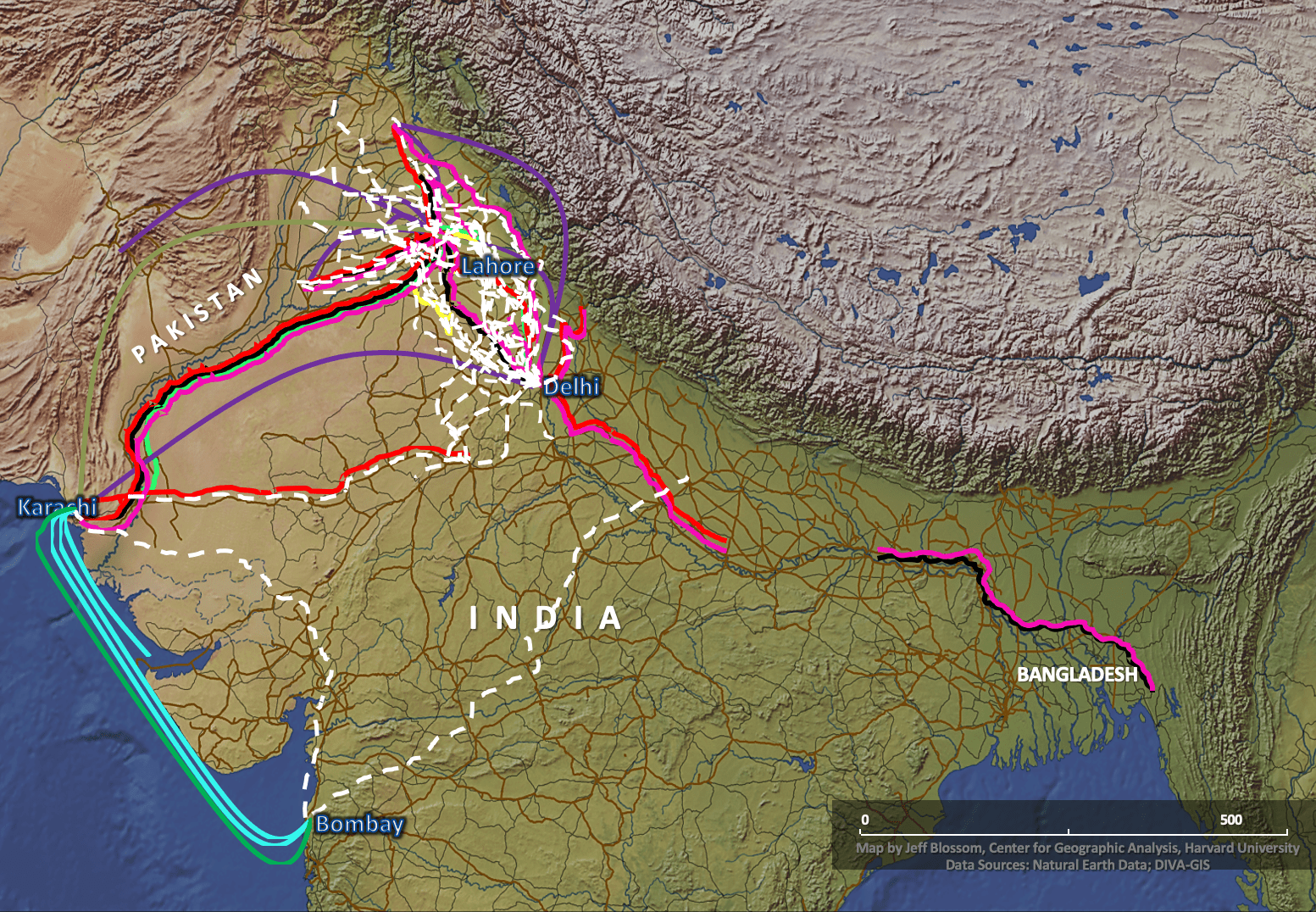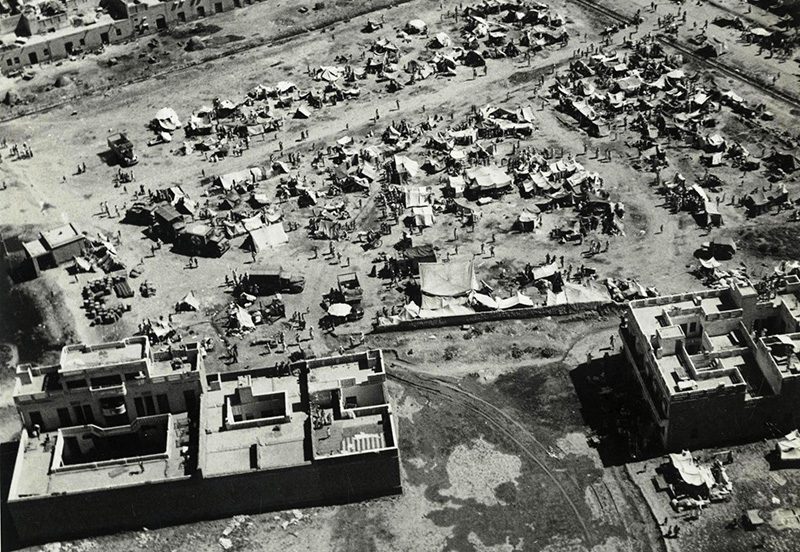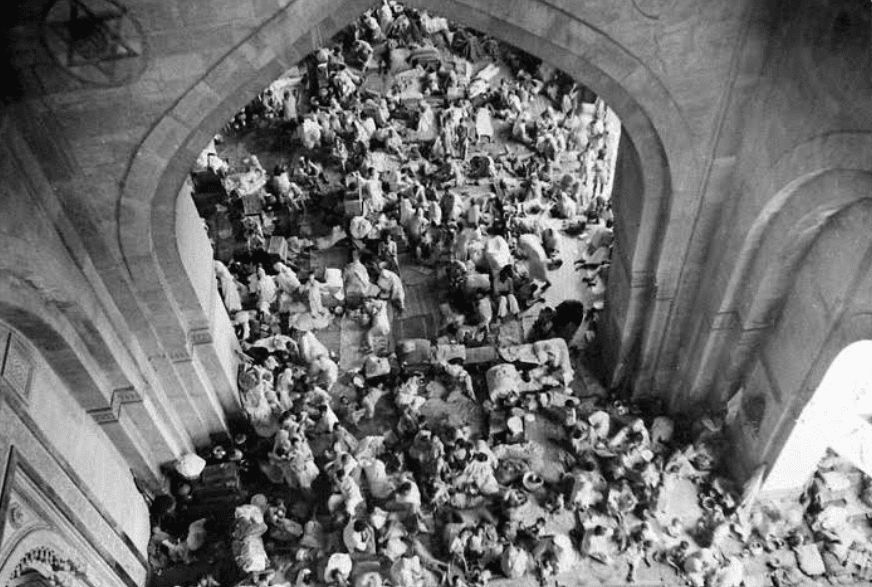Looking Back, Informing the Future: the 1947 Partition of British India
The 1947 Partition of British India
Forced Migration and Its Reverberations
Edited by:
Senior Research Fellow, FXB Center for Health and Human Rights, Harvard University, Cambridge, Massachusetts
Mittal Institute Fellow, Lakshmi Mittal and Family South Asia Institute, Harvard University, Cambridge, Massachusetts
The effort to quantify and understand this major event of the twentieth century requires research across three countries and an interdisciplinary approach. In the past decade, several faculty members from the Harvard T. H. Chan School of Public Health, Harvard Kennedy School, and Harvard Business School have investigated various aspects of the Partition through their individual disciplinary vantage points.
Faculty Lead
Jennifer Leaning, Professor of the Practice of Health and Human Rights, Harvard T.H. Chan School of Public Health
PROJECT TEAM
Acknowledgments
The Mittal Institute’s 1947 Partition Project is proud to contribute to the growing scholarship on Partition studies. Over the last few decades, numerous efforts have realized the importance of collecting oral narratives to record the insights of the last generation of survivors who experienced the trauma and events of Partition. Some notable efforts include Urvashi Butalia’s interviews, the Ashis Nandy-led Partition Project at India’s Center for the Study of Developing Societies, the 1947 Partition Archive, the Citizens Archive of Pakistan, Bangla Stories, Andrew Whitehead’s interviews in “Partition Voices,” and the Partition Museum. Our work has benefited from all of these efforts.
Despite abundant historical and political scholarship and a growing literature of personal reflections, photo essays, and oral history, there remain gaps in our understanding of what transpired in the years prior to and the months following the 1947 Partition of British India.
About the Project
The effort to quantify and understand this major event of the twentieth century requires research across three countries and an interdisciplinary approach. In the past decade, several faculty members from the Harvard T. H. Chan School of Public Health, Harvard Kennedy School, and Harvard Business School have investigated various aspects of the Partition through their individual disciplinary vantage points. However, in 2016, the Lakshmi Mittal South Asia Institute (LMSAI) brought together these research threads in the hopes of cultivating a rich interdisciplinary exploration into one of the subcontinent’s most defining events.
This project incorporates research that examines questions not yet fully addressed by existing scholarship and deploys innovative methods to extract further insights from existing texts, documents, oral narratives, maps of borders, border crossings, and patterns of urban assembly and growth. It brought together authorities from all three impacted countries, i.e. Bangladesh, India, and Pakistan, as well as from Harvard University, University of California San Diego, and the Courtauld Institute of Art, England. This is the first project where researchers from all three countries have actively collaborated to develop a complex picture of the humanitarian consequences of Partition and its impact on the people of the region.
Research
The project explores the Partition through varied lenses: its demographic and humanitarian consequences; the mixed methods analysis of oral narratives collected through a modified form of crowdsourcing; a textual analysis of conflict-laden language through examination of formal speeches of world leaders and screeds issued by publications of ideologically organized civil society; and the examination of the physical forms, layout, and temporality of refugee camps and settlements established for Partition migrants.
Media and Resources
Podcasts
Our podcasts with distinguished faculty and visiting scholars explore the history, context, and impact of the Partition.
Videos
Videos created by members of the Partition team delve into their different areas of exploration into the Partition.
Essays and News
Catch up on the latest developments within the Partition team’s many research projects through news articles and papers.
The 1947 Partition of British India project reflects on a charged historical event more than 70 years after the fact and provides perspective on the complexity of involuntary population displacement taking place today across the world in record numbers.

